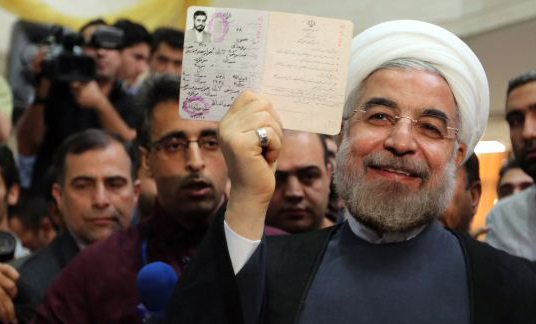
Tehran, Jun 15: Partial results from Iran’s presidential election are giving reformist Hassan Rohani a major lead with principlist candidate, Mohammad Baqer Qalibaf, trailing in the second place.
Iran's Interior Ministry says according to the latest vote tally, out of 31,106,865 valid votes from 32,189,621 total votes counted so far in the country's 11th presidential election, reformist candidate Hassan Rohani has secured 16,413,281 votes.
Following are the votes won by every candidate so far based on the percent of the total vote:
Hassan Rohani: 16,413,281 (50.98%)
Mohammad Baqer Qalibaf: 5,073,652 (15.76%)
Mohsen Rezaei: 3,593,507 (11.16%)
Saeed Jalili: 3,665,234 (11.38%)
Ali Akbar Velayati: 1,969,351 (6.11%)
Mohammad Gharazi: 391,840 (1.21%)
On Friday, millions of Iranian voters headed for polling stations to cast their ballots and choose the country’s 11th president as well as their representatives in the city and village councils.
Nearly 50.5 million Iranians, including more than 1.6 million first-time voters, were eligible to vote in the June 14 elections.
If a candidate wins over fifty percent of the vote in the first round of the Iranian presidential election, he will replace incumbent President Mahmoud Ahmadinejad. Otherwise, a run-off will be held in a week’s time to determine a final winner.
The candidates' rankings are calculated on the basis of the total number of the ballots cast.





Comments
Add new comment